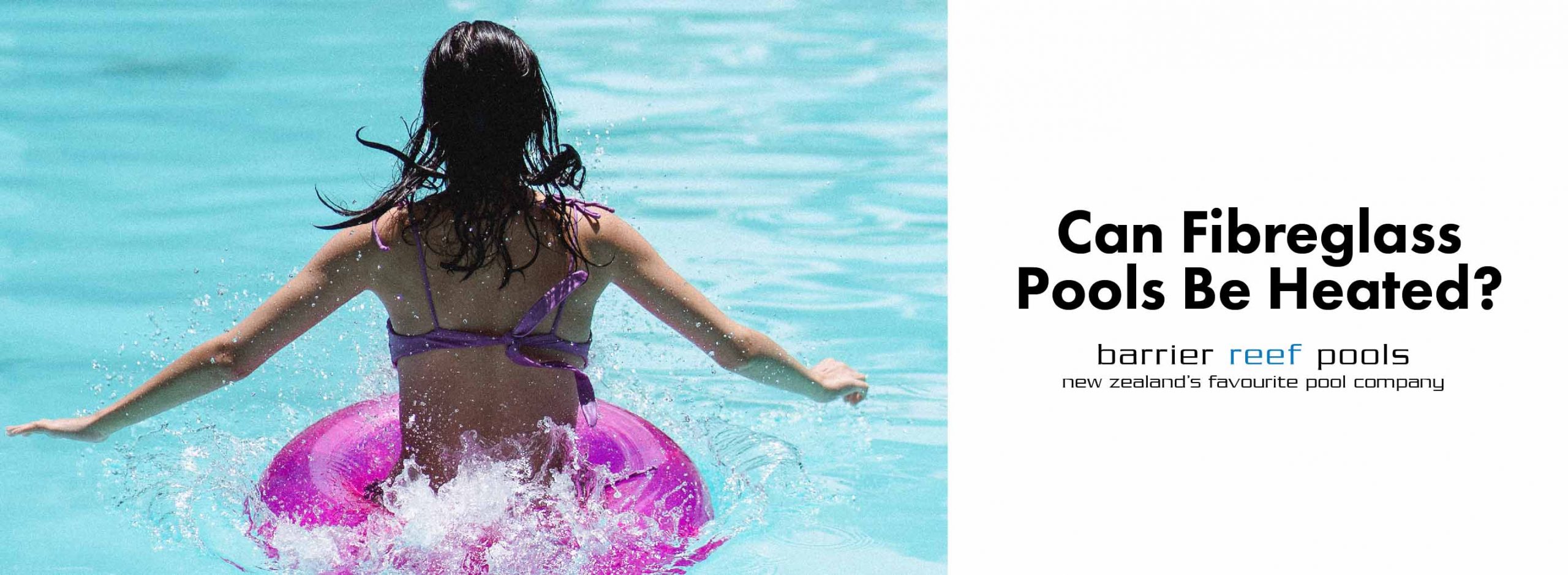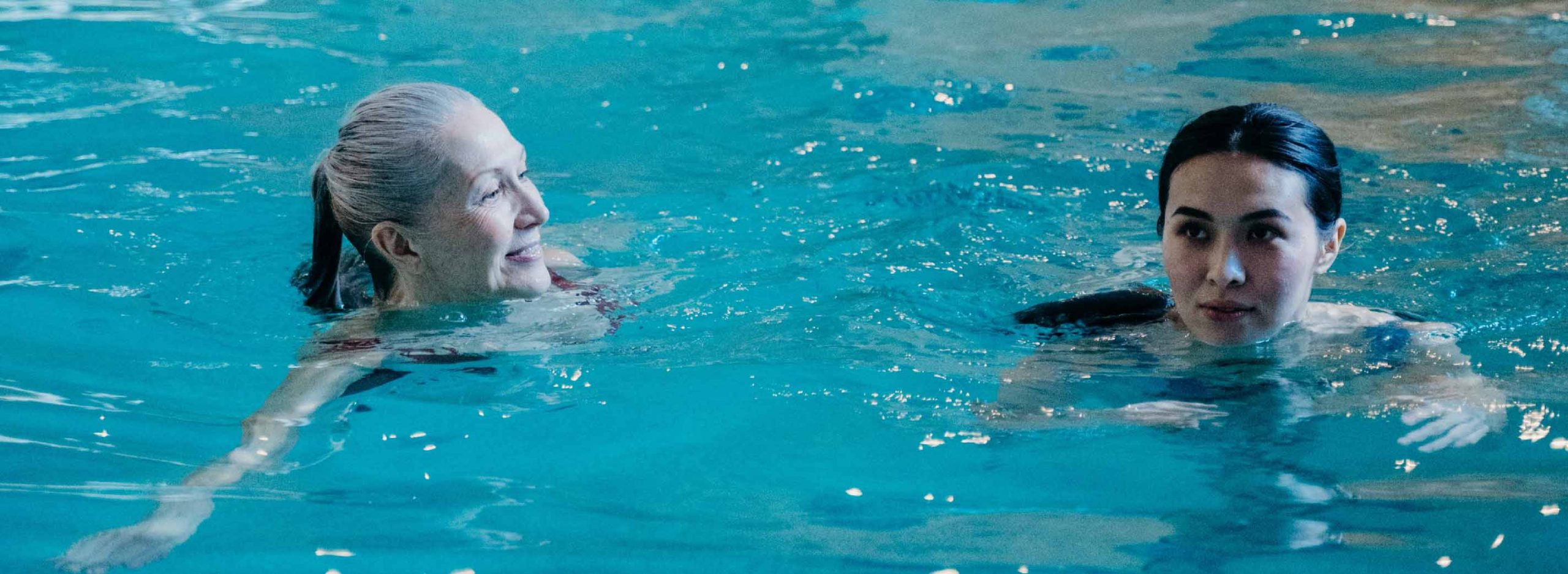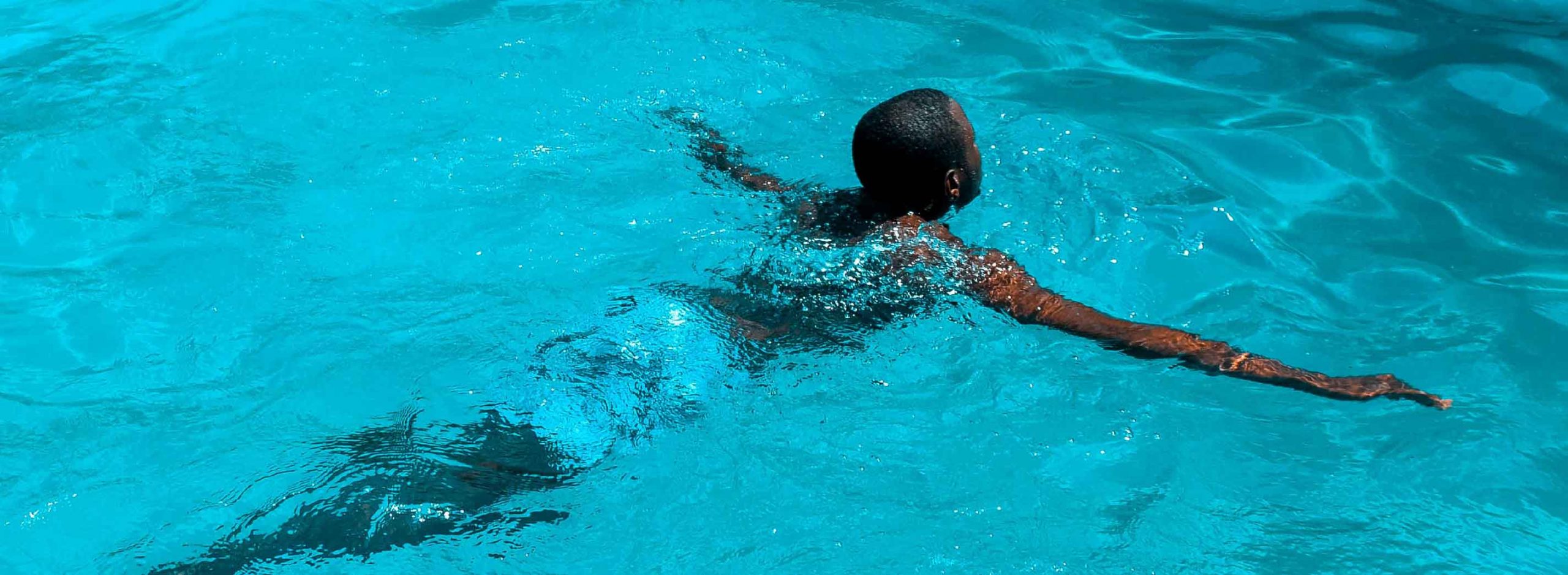Can Fibreglass Pools Be Heated?
The best way to beat the summer heat is to take a dip in your swimming pool but what about the colder winter months?
Winter hibernation is natural for bears and bumblebees, not for your pool! Why neglect your pool in winter when you can use it with a heating system in place. Are you thinking if your fibreglass pool can be heated? Yes, it can be!
It may sound unconventional but isn’t the thought of swimming in warm water on cold days exciting? Maximize your pool use when you have invested so much in its installation and maintenance.
Check out our blog for more tips and tricks for Fibreglass Pools!

Are fibreglass pools suitable for heating?
Fibreglass pools are the easiest and quickest to heat, and they also retain heat better compared to vinyl-lined and concrete pools. That simply means you save on your energy bills. A pool heating system can be a blessing on cold winter days. You can continue your swimming workout, relax those sore muscles, and enjoy some fun time with your family in the pool.
You have various heating options available for your fibreglass pool. The most effective are solar heating, heat pumps, and gas pumps. The heating system that is best for your pool depends on the size, frequency of use, purpose, climate, and availability of the sun.
Understanding different options for heating a fibreglass pool
To make an informed decision it is important to know all the pool heating options and their pros and cons.
Solar Heating
Solar power is one of the cleanest and most effective sources of pool heating. It is a cost-effective solution and extremely popular among pool owners all around the world. As the name suggests, it uses energy from the sun without releasing any harmful gases that cause air pollution. This environment-friendly option may have higher instalment expenses but in the long run, it will save you electricity and fuel bills compared to the other pool heating solutions.
As solar heaters harness the sun’s energy to warm your pool water, the system works best in sunny regions. Placing the solar panels in the sunniest spot in your home, like the roof or backyard can maximise the benefits. Solar heaters are low-maintenance equipment and do not involve much cleaning. Solar heaters can increase your pool’s temperature by up to 2 degrees within a couple of hours on clear, sunny days. On days with a cloud cover, it may take longer than usual to warm your pool, but a solar heater will not fail to work on most days.
If you are looking at pro-environment, solar energy, you have several options to consider.
Solar panels can be installed on sunny spots like the roof or lawn. They are easy to install and usually come with a warranty. Solar panels are suitable for small and large fibreglass pools. The working system is simple. It involves a solar collector, a pump, a valve, and a filter for removing debris. The water moves through the filter and is lifted by a low energy consuming pump to the solar collectors. These collectors are heated by the sun’s thermal energy and pass the heat to the water. The warm water is then sent back to the pool. A flow control valve diverts water through the collectors.
Solar panels occupy a large area for installation. Their heating efficiency depends on how many panels have been installed. With more panels, the heating can be quick and efficient.
Solar mats are blanket-like units suitable for heating small pools. These solar mats are heated up by absorbing sun rays. When the pool water is pumped through these warm solar mats, they successfully raise the temperature of the pool water. Solar mats come in different shapes and sizes to suit different pool requirements. You need enough area to accommodate solar mats. The process of heating is rather slow through this method.
Solar dome pool heaters are compact in design as compared to solar panels and solar mats. This heating equipment looks cool and is ideal for heating inground and above-ground pools. The piping used for heating and circulating water is placed in the domes. Ideal for use in small pools, dome solar heaters may require some extra energy to pump water. These domes require less investment compared to solar mats.
Solar heaters can also be used in combination with other heating systems on days when the skies are overcast. This will reduce energy bills and keep your pool comfortably heated.
Solar blankets look like sheets of bubble wrap that float on the surface of your pool to keep the water warm. These are effective in heating the pool water during the y and trapping the heat at night. You can keep the solar blanket floating when the pool is not in use and roll it up when you want to swim. These solar blankets can be cut to fit the size of your pool making them ideal for any pool.
Pros Of Solar Heating
- Energy efficiency
- Environment-friendly
- Cost-effective
- Makes no noise
Cons Of Solar Heating
- Reliant on the sun
- Takes longer to heat water
- Initial expenses are high

Gas Heating
Heating your pool with a gas heater or a gas pump is the most expensive method of warming your pool. However, you can use gas heating equipment any time of the year to maintain a consistent water temperature.
Gas heating systems are reliable and heat water quickly and effectively. The running cost is expensive. Many homeowners use gas pool heating equipment in combination with solar heating to save valuable dollars.
Pros Of Gas Heating
- Lower installation cost
- Quick heating
- Not reliable on weather
- Ideal for small pools and spas
Cons Of Gas Heating
- Not an environment-friendly option
- Running cost is high
- Best used as a backup in combination with cheaper and eco-friendly heating alternatives
Electric Heaters
As the name suggests, electric heat pumps run on electricity. They are popular among homeowners as a pool heating choice. Electric heaters collect heat from the surrounding air. The air is then passed over a heat exchanger and an evaporator coil. The pump sends water into a heating tank where it gets warm and is sent back to the pool. The continuous exchange of hot and cold water keeps the pool temperature at a comfortable level.
Electric pool heaters can make your energy bills jump high. These are good for places with weak sunlight. Ideally, running electric heaters as a backup in combination with solar-powered pool heaters can be a money-saving option for you.
Pros Of Electric Heat Pump
- Costs less than its gas counterpart
- Helps maintain a consistent temperature
- Ideal for pools that are frequently used
- Effective in warmer climates
Cons Of Electric Heat Pump
- Takes considerable time to heat water
- Not so efficient in cooler climates

Which pool heating option is right for me?
As mentioned, every pool heating option has its pros and cons. You can choose any method to heat your fibreglass pool. However, before taking a decision you must consider these important things.
Budget
How often do you need to heat your pool
Will you benefit from heating your pool?
If you are confused and cannot decide, the ideal option is to discuss it with pool professionals. They have the experience and the knowledge to guide you select what suits your fibreglass pool and requirements best.




